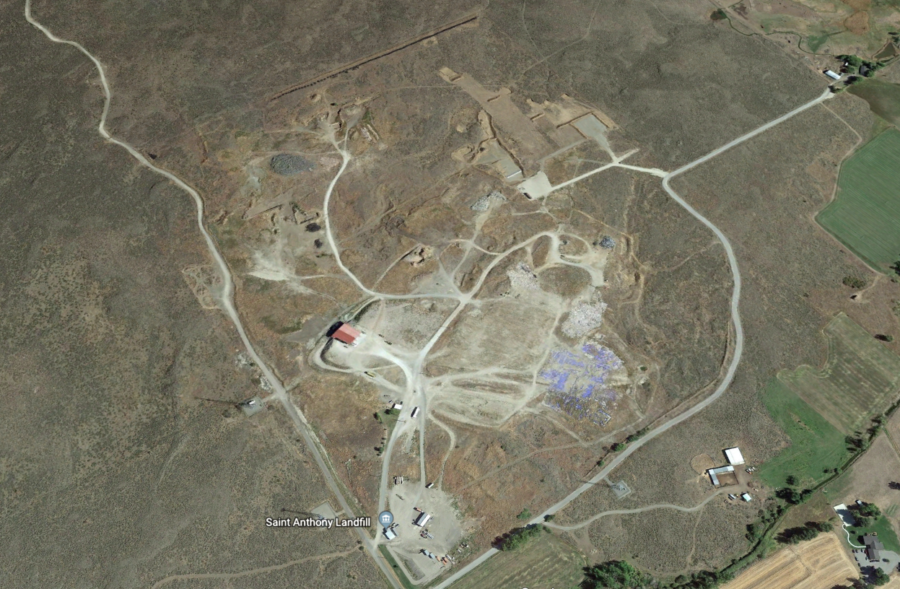Here’s why your Fremont County landfill fee may stink
Published at | Updated at
FREMONT COUNTY — Some people in Fremont County have seen their landfill user fees go up recently, while others have seen theirs go down.
R.J. Thueson, owner of R.J.’s Exxon and Les Schwab Tire Center in St. Anthony, said his commercial user fee raised by 300 percent. He said he has talked with Fremont County commissioners and understands why the fee went up, especially if it provides a better service, but he doesn’t understand why residents had their fees go down while commercial business owners in general saw their fees go up.
“Not only does it make it hard to stay in business, it makes it so new businesses don’t want to come to our area because the taxes are too high,” Thueson said.
According to Landfill Supervisor Curt Miller, residences have seen their user fees lower by $95, but some businesses owners saw an increase of more than $100.
Trash talk
Fremont County has two landfills: St. Anthony and Island Park. Both are unlined landfills, which means it is easier for pollutants to leak through the ground whenever it rains and possibly get into nearby water sources.
In 2010, the Idaho Department of Environmental Quality ordered the Fremont County commissioners to investigate and analyze what was happening with the two landfills.
Because of a possible danger to the groundwater, the county is no longer allowed to dump municipal garbage — that is, household garbage, including food waste, furniture and yard waste. Instead, they transport it to the Jefferson County landfill, which is lined.
Part of the raised costs include transportation. The contractors the county pays to move the trash are charging more because they have to take it to Jefferson County. This is the user fee.
According to an April memo from Fremont County Public Works Director Brandon Harris to the county commissioners, this fee is based off of what kind of waste is generated. Municipal waste costs 4 cents a pound to haul out, tires cost 15 cents, while recyclables are free. The contractors are charged for the waste they bring in, and that cost is then transferred on Fremont County customers.
Harris’ memo states the St. Anthony and Island Park landfills receive about 9,000 tons of waste annually.
“At the current time, a rental property or a large family pays the same as a retired couple,” the memo continues. “This tipping/user fee will create a system that is more equitable — those who use it more pay more.”
But that’s not all the money that residents are charged for waste removal. There’s also the base fee — which is used for overhead costs like emergency funds, equipment, testing and the assurance fund.
What’s the assurance fund?
Even though assessments from Rocky Mountain Environmental over the past 15 years have found no groundwater contamination from the Fremont County landfills, the risk remains. Because of this, the DEQ initially ordered Fremont County to close its St. Anthony landfill by 2019.
“(Closing the landfill) include(s) a cell cap/cover of earth or liner material and continuous groundwater monitoring for 30 years,” according to the memo.
The assurance fund is what it costs to close the landfill, and the DEQ, U.S. Environmental Protection Agency and Idaho law require the county’s Public Waste Office to have the money on hand. Fremont County is trying to push back closing the landfill until 2023 because that will give officials more time to raise the necessary money – which means they would have to charge residents less.
In April, Harris wrote they would need over $5 million in assurance funds for the two landfills. (Island Park’s landfill may have another decade left.) According to his calculations, 26 percent of the base fee charged to most residents goes to the assurance fund.
“We’re really at the mercy of the DEQ here,” said Public Works Assistant Debbie Davis.
If the county doesn’t get the money for the assurance fund before the DEQ orders them to close the landfill, the DEQ could begin charging the county even more.
The base fee is also divided among residents and commercial businesses, with grocery stores being charged the largest amount and theaters the least.
“The county is just trying to make it the fairest way possible,” said Miller. “You pay for what you generate.”


